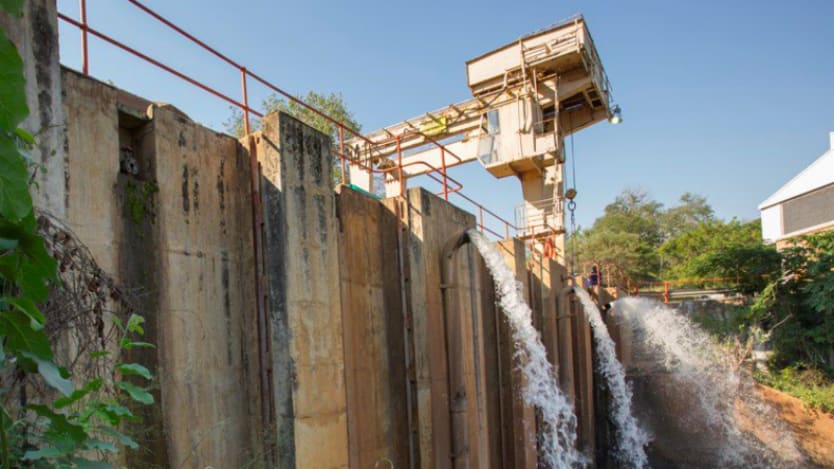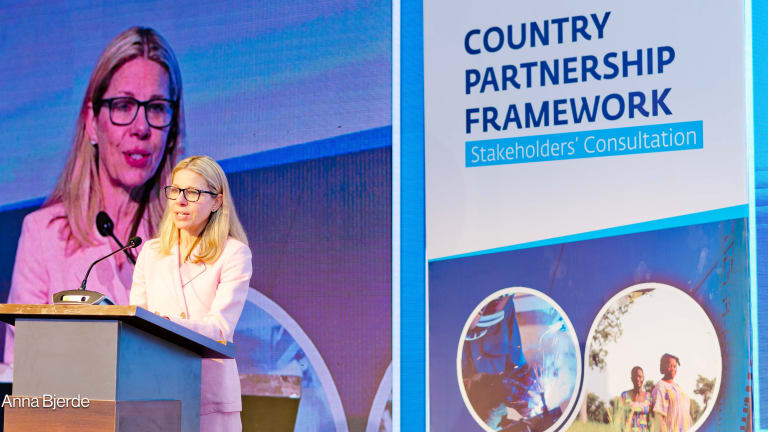MCC can now sign regional compacts, expanding influence of infrastructure projects

WASHINGTON — The Millennium Challenge Corporation can now make regional compacts, a move the organization says will allow it to better maximize resources and results by investing in projects that can benefit multiple countries at once.
President Donald Trump signed the African Growth and Opportunity Act and Millennium Challenge Modernization Act Monday after the bill passed in the Senate and House with bipartisan support. MCC Acting CEO Jonathan Nash said his organization has a track record of delivering complex, large-scale projects on budget and on time in its partner countries, but the previous law only allowed a country to enter into one compact at a time. That restriction prohibited any regional deals.
“The idea is that we’re going to take this model we’ve tested on a bilateral basis and apply it on a regional basis and really help to connect regional partners’ growing economies and markets, and really create some opportunities for trade and investment and help country partners become integrated on a regional basis,” Nash told Devex.
Nash said in addition to being a useful tool in Africa, where two-thirds of MCC partners are located, regional compacts could also be used for projects in Latin America, where several MCC countries share borders, as well as in Southeast Asia. During its 14-year history, MCC has signed 35 compacts worth more than $12 billion with 29 countries.
MCC worked closely with the National Security Council on the bill, which had broad support in the House and Senate but had a difficult time getting on the congressional agenda. House Foreign Affairs Committee Chairman Ed Royce, Republican of California, said the bill would help the U.S. create “trade partners rather than aid recipients.”
“Trade and free-market principles have helped lift more than a billion people out of poverty over the past decade alone,” Royce said. “But it is not just this humanitarian goal that leads us to invest in communities abroad. As we’ve seen again and again, investments targeted toward growing more healthy, stable societies are good for our national security and good for American job creators.”
Current MCC compacts last five years, and the regional compacts will likely follow that timeline, although a final decision will be made by the agency’s board. The regional deals will be implemented by MCC country partners on a regional basis.
“Our singular mission is to reduce poverty through investments in projects that will drive private sector-led investment growth, so we will always seek to invest in projects we believe will drive growth and will get a good value for our investment,” Nash said. “Those criteria will carry forward as we’re looking for these different projects.”
A country must meet rigorous governance standards to be eligible for an MCC compact. Those include things such as access to credit, civil liberties, control of corruption, freedom of information, inflation, land rights and access, political rights, and rule of law.
Nash said being able to provide grant funding to two countries that share a border will be particularly useful for infrastructure projects such as power grids, roads, and water access. It could also help modernize border crossings to reduce the time and money it takes for the private sector to move goods and people between nations.
Some projects that already exist stand to become even more effective under the new authority for regional deals, Nash said. One example is the West Africa Power Pool, which helps create transmission distribution networks for energy in the region.
“With this you could potentially go in and expand the number countries or expand the infrastructure,” Nash said. “You have a number of countries that are able to produce a lot of power, more than they need, and then you’ve got a number of countries who can’t produce enough power. So helping to build out the infrastructure and support the regional market can help bring down the cost of energy for all, as well as improve reliability and access.”
Search for articles
Most Read
- 1
- 2
- 3
- 4
- 5








